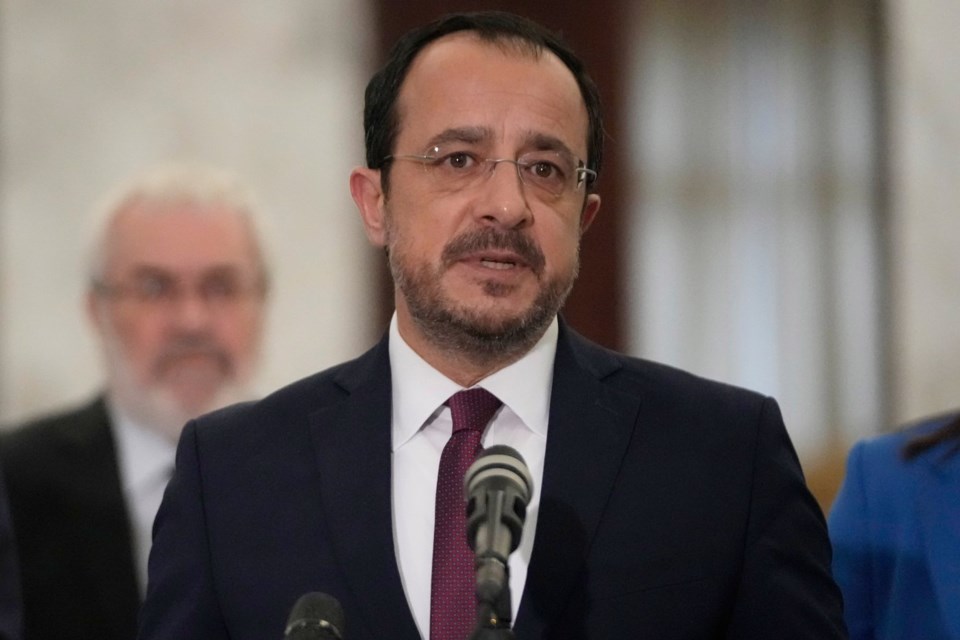NICOSIA, Cyprus (AP) — The European Union is “strongly displeased” with Turkish government warnings that it would obstruct the laying of an electricity cable linking the power grids of Greece and Cyprus, the Cypriot president said Friday.
President Nikos Christodoulides told reporters that the EU’s ire was made clear in his conversations with top officials, including European Commission President Ursula von der Leyen and Commissioner of the Mediterranean Dubravka Suica.
The EU has pumped around 800 million euros ($908 million) in to the 1.94 billion Great Seas Interconnector, or GSI, that will link up with Israel’s power grid at a later phase. The cable's overall length from Greece to Israel would be 1,208 kilometers (750 miles).
Media have quoted unnamed Turkish Defense Ministry officials as saying that the cable cannot proceed without Turkey’s consent because it would pass through waters that it claims are under its jurisdiction.
The Turkish officials called the project “provocative” because it disregards the rights of Turkey and the breakaway Turkish Cypriots in ethnically divided Cyprus, warning that Turkish authorities would respond to any work as they had done in the past.
They didn’t elaborate what that response would be, but Turkish warships have reportedly impeded the work of vessels surveying the route that the cable would take in waters near the Greek islands of Kasos and Karpathos.
Greek officials have pledged that work to complete the GSI would continue. Greece says international law is on its side under a maritime border agreement it signed with Egypt, while considering a similar agreement Turkey signed with Libya as legally invalid.
Turkey has in the past also dispatched warships off Cyprus' southern coastline to impede exploration and drilling for natural gas in waters in also claims as its own.
Christodoulides played down any concerns of escalating tensions with Turkey, saying that Cyprus would take no action that would lead to any clash.
But he said the Cypriot government would defend its rights under international law with the legal tools at its disposal. GSI is considered a strategic project particularly for Cyprus and Israel as it would end their energy isolation and reduce energy costs for consumers.
Greece’s Independent Power Transmission Operator, which is heading the project, told The Associated Press that although 160 kilometers (100 miles) of electric cables have been manufactured so far, cable laying operations haven’t yet started because marine surveys to determine the cable’s final route between the Greek island of Crete and Cyprus are still in progress.
The company added the Cyprus-Israel section of the cable link “is advancing on both technical and regulatory fronts” with more details about progress to be made available after the summer.
Menelaos Hadjicostis, The Associated Press




